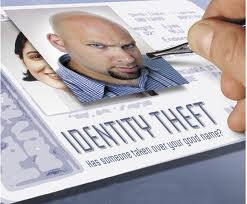Identity Theft: Don’t Be Naive – Part One
You go on a routine trip to pick up a few things from the grocery store. After picking out your items, you head to the checkout lane. Thinking of your grand dinner plans for the evening, you give your credit card for payment. But the cashier informs you that the card couldn’t be authorized for payment. Knowing your account should have enough limit, you ask the cashier to try it again, and that there must be some kind of mistake.
After the second unsuccessful try, you sense something very wrong.
Experiencing this, you try to reason that something must be amiss with your bank. There must be some sort of mistake. Upon contacting the bank, they tell you that according to their records, you’ve gone over the limit allowed on the credit card. Knowing you had not used the card very much, and knew the credit limit well, it sinks in that something happened on your card that you weren’t aware of.
Sometimes, the bank does mess up. But other times, the bank isn’t aware of anything more than a balance and a due date for the payment. So when you suspect there’s a problem with your credit card, you’d better believe you should be very concerned with your credit rating as well.
I’m referring to identy theft, an ever-growing problem in this country that steals from millions of American’s each year. Identity theft victims are often robbed of their good name, credit score and money through deception of another. Identity thieves often target credit cards, health benefits and income tax returns, just to name few. While methods of detection for identity theft have come far over the last 20 years, so has the ability of the identity thief, always looking for ways to prey on unsuspecting, law-abiding citizens.
Understanding how identity theft is made possible is the key component to reducing the risk of being a victim. Knowing how to react would stop the bleeding. Here, we’ll discuss what you should do if you suspect your identity has been compromised.
Although it will be time consuming, there’s little choice but to save your good name, credit and other finances. Let’s first look at other signs that your identity has been stolen:
- Unexplained withdrawals from your account(s)
- Don’t receive bills or other mail
- Debt collectors contact you about debt you don’t owe
- Unfamiliar charges or accounts on your credit report
- You’re arrested for a crime someone else commited in your name
Who we trust with our information, and how we protect it from criminals, makes all of the difference in the world. But how is this growing problem being addressed?
The penalty has become stiffer under laws to deter identity theft, and much more must be done. But in the meantime, trust nobody with your personal information, as there are opportunists looking for victims. Being aware instead of complacent is key. Always protect your social security number, credit card information and even your driver’s license number. As I’ve always lamented, we as people would like nothing more than to be able to trust others. The same holds true here. But unfortunately in this technological age, even those closest to us could be the identity thief.
Part two of this series will inform consumers on what they need to do when becoming a victim of identity theft. It’s unfortunate, but the victim’s are the most burdened. Identity theft is a serious crime, but by educating consumers better, this act of fraud can be minimized.
Posted on February 20, 2014, in Uncategorized and tagged financial fraud georgia, financial fraud warner robins, identity theft family, identity theft georgia, identity theft macon, identity theft prevention. Bookmark the permalink. 1 Comment.

Excellent blog! Do you have any hints for aspiring writers?
I’m planning to start my own blog soon but I’m a little lost on everything.
Would you suggest starting with a free platform like WordPress or go for a paid option?
There are so many choices out there that I’m totally overwhelmed .. Any suggestions? Thanks a lot!